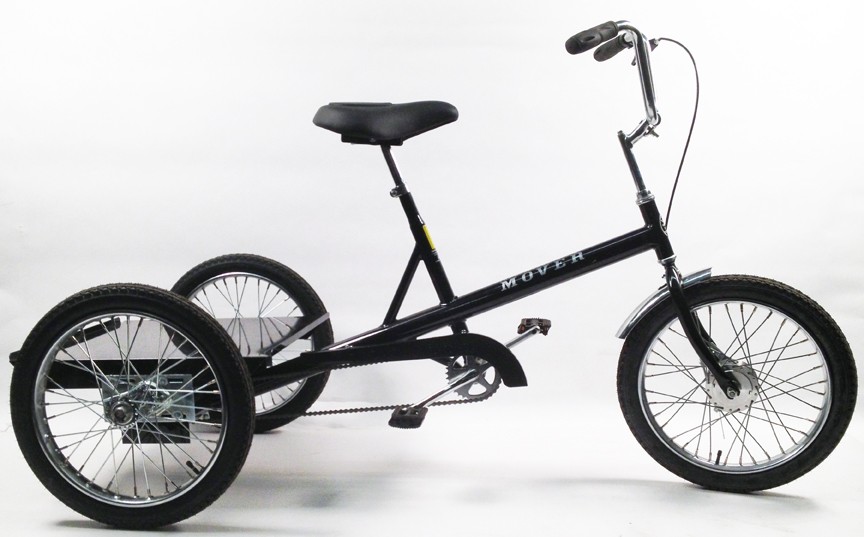Why Cities Need a Greener Delivery Solution
 Urban centers grapple with urgent environmental challenges such as pollution, noise, and traffic congestion. These issues detract from livability and environmental health and demand immediate and decisive solutions. Traditional delivery vehicles, while convenient, are significant contributors to these urban problems. They emit greenhouse gases, create noise pollution, and clog already congested streets, perpetuating a cycle of inefficiency and environmental harm. However, a promising alternative is emerging: cargo bikes. More than a passing trend, cargo bikes provide a zero-emission, efficient delivery option that can transform city logistics.
Urban centers grapple with urgent environmental challenges such as pollution, noise, and traffic congestion. These issues detract from livability and environmental health and demand immediate and decisive solutions. Traditional delivery vehicles, while convenient, are significant contributors to these urban problems. They emit greenhouse gases, create noise pollution, and clog already congested streets, perpetuating a cycle of inefficiency and environmental harm. However, a promising alternative is emerging: cargo bikes. More than a passing trend, cargo bikes provide a zero-emission, efficient delivery option that can transform city logistics.
Integrating cargo bikes into urban logistics systems is not just an environmental benefit but an essential move for cleaner, quieter, and more efficient cities. The data show that cargo bikes can dramatically lower emissions, reduce noise pollution, and ease operational costs, making them a linchpin for sustainable urban planning.
Cargo Bikes vs. Traditional Delivery Vehicles — A Clear Environmental Advantage
Urban transportation contributes significantly to greenhouse gas emissions, with delivery trucks and vans among the significant sources. Studies show that road transport accounts for approximately 25% of greenhouse gas emissions across the EU, underscoring the urgent need for more sustainable delivery methods. Cargo bikes, by contrast, emit no greenhouse gases, providing an effective way for cities and businesses to reduce their carbon footprint while meeting delivery demands.
- Reducing Greenhouse Gas Emissions: The emissions generated by conventional delivery vehicles are substantial. Replacing traditional vans with cargo bikes could achieve an average reduction in emissions of 97%, as evidenced by successful implementation in cities like Paris and São Paulo. By transitioning to cargo bikes for urban routes, cities can achieve significant cuts in emissions—a necessary step as urban populations grow and delivery demands rise.
- Mitigating Noise Pollution: Alongside emissions, noise pollution from delivery trucks disrupts urban life, impacting everything from productivity to sleep quality. Cargo bikes, however, operate almost silently, making them particularly suited for densely populated neighborhoods. This reduction in noise pollution goes beyond comfort; it has measurable benefits for mental health, productivity, and overall livability, especially in areas with schools, hospitals, and residential buildings.
Alleviating Urban Congestion with Cargo Bikes
While pollution is a crucial problem, traffic congestion in urban areas is equally pressing. Delivery trucks occupy considerable road space, compounding congestion, causing delays, and releasing additional emissions as vehicles idle in traffic. Cargo bikes offer a unique advantage: they take up less space, utilize bike lanes, and can navigate through congested streets with minimal impact on overall traffic flow.
- Space Efficiency and Traffic Flow: Cargo bikes take up only 35% of the road space a delivery van would use, making them a highly space-efficient solution for urban logistics. For every 10% of delivery vans replaced by cargo bikes, cities can achieve up to a 15% reduction in overall traffic delays. This significant space saving frees up roads and helps keep urban areas moving more efficiently.
- Real-World Data on Traffic Improvements: Cities that have tested cargo bike solutions have seen immediate traffic flow improvements. For example, replacing just 50% of delivery vans with cargo bikes reduced average traffic delays by over 10 minutes. This reduction in congestion means fewer emissions from idling vehicles and less time wasted on crowded roads, highlighting cargo bikes as a practical and feasible infrastructure solution.
Economic and Operational Benefits of Cargo Bikes for Businesses and Cities
Cargo bikes offer businesses and municipalities environmental and significant financial advantages. Traditional delivery vehicles incur high fuel and maintenance costs, whereas cargo bikes provide a lower-cost alternative that aligns with economic and sustainability goals. This financial advantage and environmental benefits make cargo bikes compelling for businesses and municipalities.
- Reduced Operational Costs: Cargo bikes significantly reduce operational costs compared to traditional vehicles. Businesses integrating cargo bikes into their fleets report annual savings of up to 31%, thanks to lower maintenance costs, no fuel expenses, and avoided congestion-related delays. For companies, these savings make a strong case for adding cargo bikes to their logistics, supporting sustainable business strategies that positively impact the bottom line and offer a promising future of cost savings.
- Social and Economic Returns for Municipalities: Municipalities, too, benefit economically from adopting cargo bikes. Reducing emissions and noise pollution leads to lower healthcare costs and fewer road accidents, resulting in savings on emergency response expenses. For every dollar invested in bike-friendly infrastructure, cities can expect a threefold return in health-related savings due to reduced pollution. Beyond operational savings, these returns translate to improved urban health and quality of life, reinforcing the broader social benefits of adopting cargo bike logistics.
Embracing Cargo Bikes for a Healthier, More Efficient Future
The case for cargo bikes is compelling. With rising urban populations and a clear need for sustainable delivery solutions, cargo bikes offer a cost-effective, environmentally friendly alternative to traditional delivery vehicles. Carrier bikes address the most pressing urban challenges by reducing emissions, minimizing noise, and alleviating traffic congestion.
Building a sustainable urban future requires intentional choices, and cargo bikes represent a decisive step forward. For businesses, they offer operational savings, and for cities, their environmental and social benefits make cargo bikes a key element in future urban planning. Cargo bikes are more than just transportation tools; they represent a comprehensive solution for building healthier, more livable cities. Now is the time for city leaders and businesses to embrace this green innovation, creating more sustainable and better-equipped urban environments for future generations.







